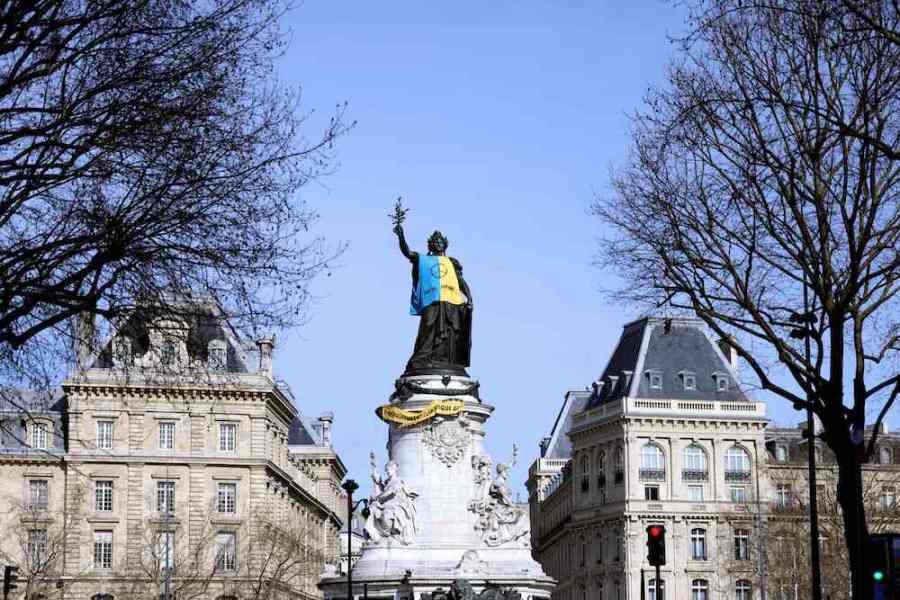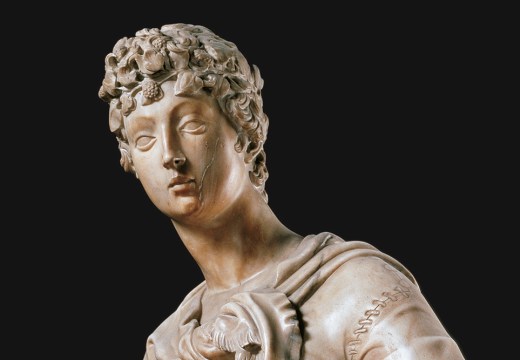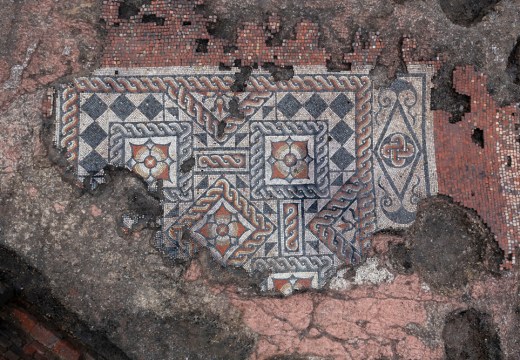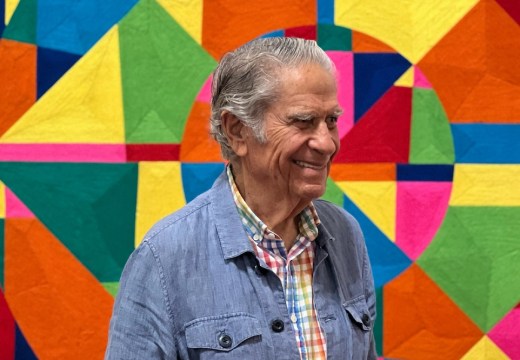The French government has announced a relief fund of €1m for fleeing Ukrainian artists and cultural workers in an initiative that will also apply to dissident Russian artists. A statement from the culture ministry said that, under the scheme, artists and arts professionals and their families will be eligible for residencies for a period of three months via the existing PAUSE programme, which helps foreign researchers, scientists and intellectuals who are at risk in their home countries. Some three-quarters of the money is allocated to an emergency telephone service in both Ukrainian and Russian organised by the Agency of Artists in Exile, while the rest will help applicants find residencies. The French culture minister Rosalyn Bachelot said that she ‘wants Ukrainian artists to be supported so they can continue their creative work in France’, suggesting that more funds will be made available in the future.
Two members of staff at the Museum of Modern Art in New York were stabbed last Saturday. The suspect, Gary Cabana – who was arrested three days later in Philadelphia – was denied entry to the museum because his membership had been revoked, jumped over the front desk and attacked the two employees. The New York Police Department said that Cabana was known to museum staff due to the incidents of disorderly behaviour that had led to his membership being revoked, but he did not have a criminal record. MoMA evacuated visitors during the incident and remained closed until last Tuesday. MoMA has not commented on its safety protocols, but representatives of the Philadelphia Art Museum and the Seattle Art Museum told the New York Times that the museums were reviewing their own protocols in light of the recent incident.
Francis Kéré has been awarded the Pritzker Architecture Prize this year. The architect, who was born in Burkino Faso, is the first African ever to win architecture’s most prestigious award, previous winners of which include Anne Lacaton and Jean-Philippe Vassal, Richard Rogers, Zaha Hadid and Oscar Niemeyer. Kéré has designed schools, health centres and libraries in countries across Africa, including Benin, Mali, Togo, Kenya, Mozambique and Sudan, as well as in his native Burkino Faso. After studying in Berlin, the first building he designed was a primary school in his home village of Gando, which was built by local people and displayed the architect’s signature use of local materials and the fusion of traditional techniques and modern engineering. It won the Aga Khan Prize in 2004 and a year later Kéré founded his practice in Berlin. High-profile, but temporary, commissions include the Serpentine Pavilion (2017) and at the Venice Architecture Biennale (2018). More recently, he has been commissioned to design new parliament buildings in both Burkino Faso and Benin, with the latter under construction.
The Metropolitan Museum of Art in New York has announced that the architect Frida Escabedo will design its new Modern and Contemporary wing, in what will be the Mexican architect’s largest project to date. The announcement ends David Chipperfield’s association with the long-delayed project, which has been on hold since 2017 due to a lack of funds but has been revived after the museum received its largest-ever gift last year, $125m from Oscar L. Tang and Agnes Hsu-Tang. Escabedo has designed pavilions and temporary structures aroud the world, including the Serpentine Pavilion in 2018. She has also worked on the expansion of La Tallera Siqueiros in Cuernavaca in Mexico and renovated the Hotel Boca Chica in Hollywood. Max Hollein, director of the Met, told the New York Times that Escabedo is ‘a strong voice in the architectural discourse. She produces very contemporary buildings that are rooted in a modern canon.’
In the UK, a report published by the Select Committee for Culture, Media and Sport committee has said that government spending of £120m on the Unboxed festival (popularly known as the ‘Festival of Brexit’) is an ‘irresponsible use of public money’ and that it is ‘far from clear that [Unboxed] will deliver a return on investment’. The Art Newspaper reports the comments of the committee’s chair, Julian Knight: ‘The Unboxed festival acts as a prime illustration of an event with aims that have been vague from the start. That it took three years to come up with a rather nebulous name, which will mean little to the few that are even aware of its existence, does not bode well for its chances of delivering a true lasting legacy.’
Unlimited access from just $16 every 3 months
Subscribe to get unlimited and exclusive access to the top art stories, interviews and exhibition reviews.














![Masterpiece [Re]discovery 2022. Photo: Ben Fisher Photography, courtesy of Masterpiece London](http://www.apollo-magazine.com/wp-content/uploads/2022/07/MPL2022_4263.jpg)






